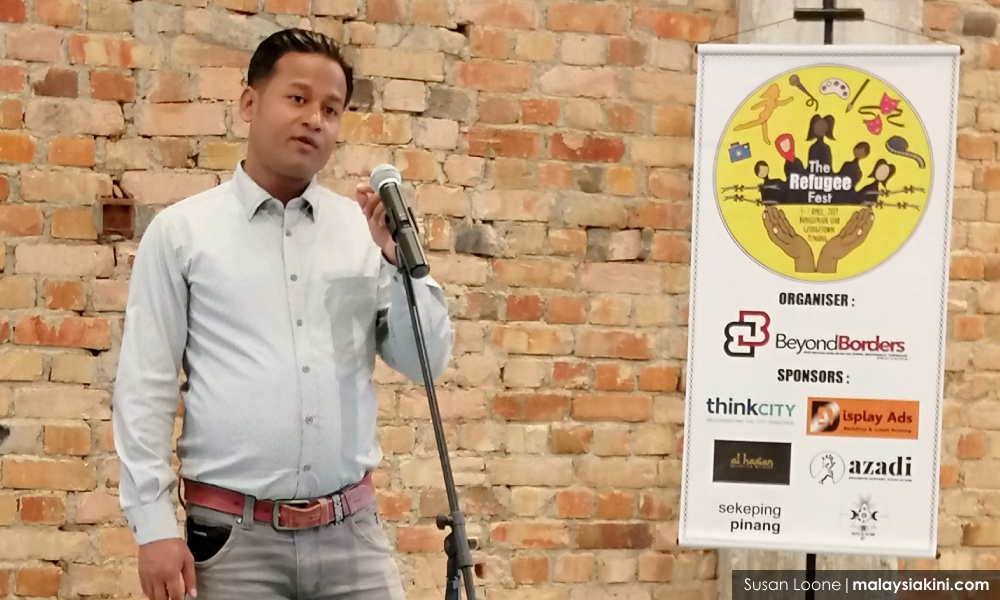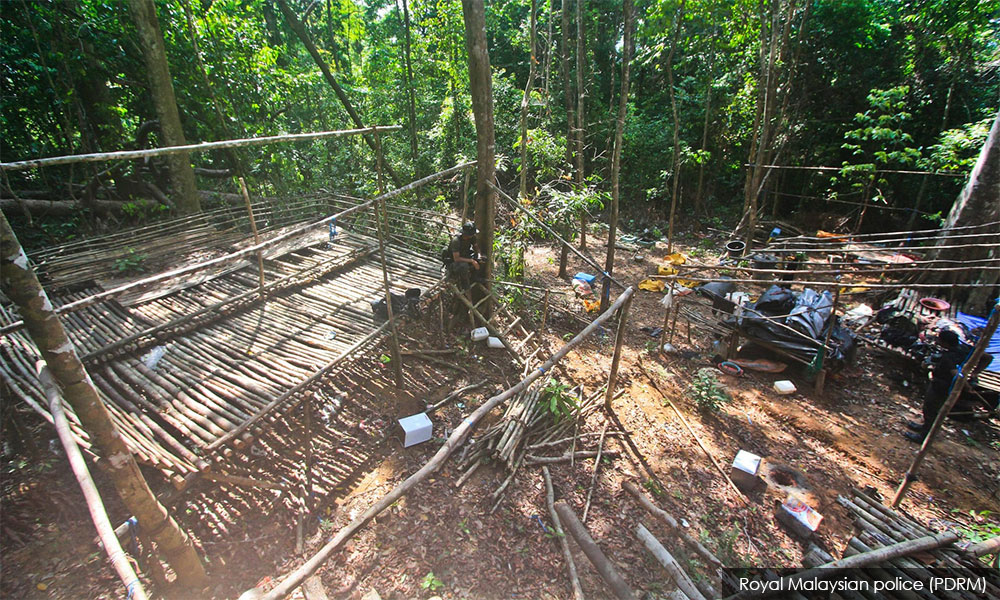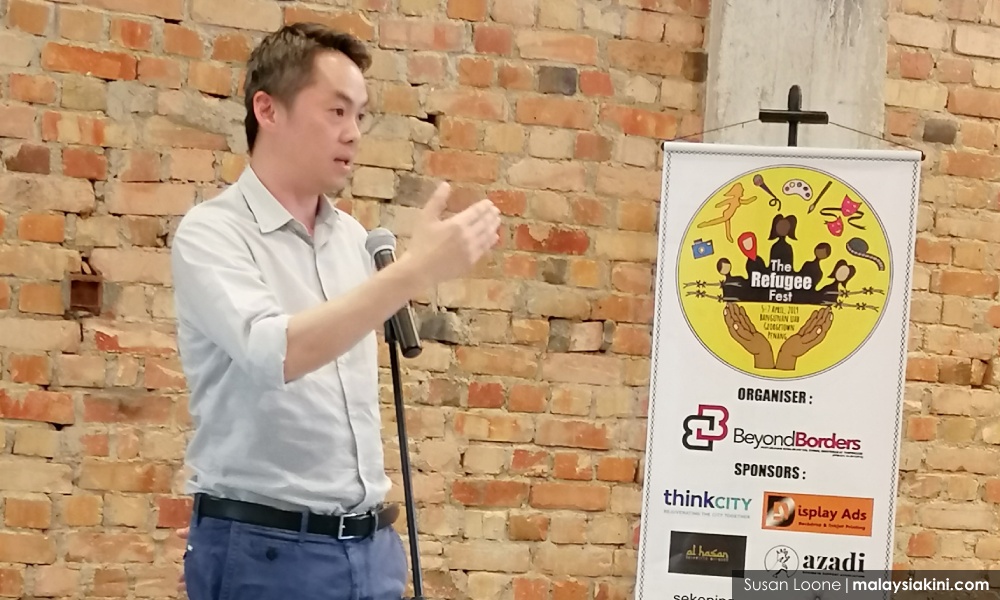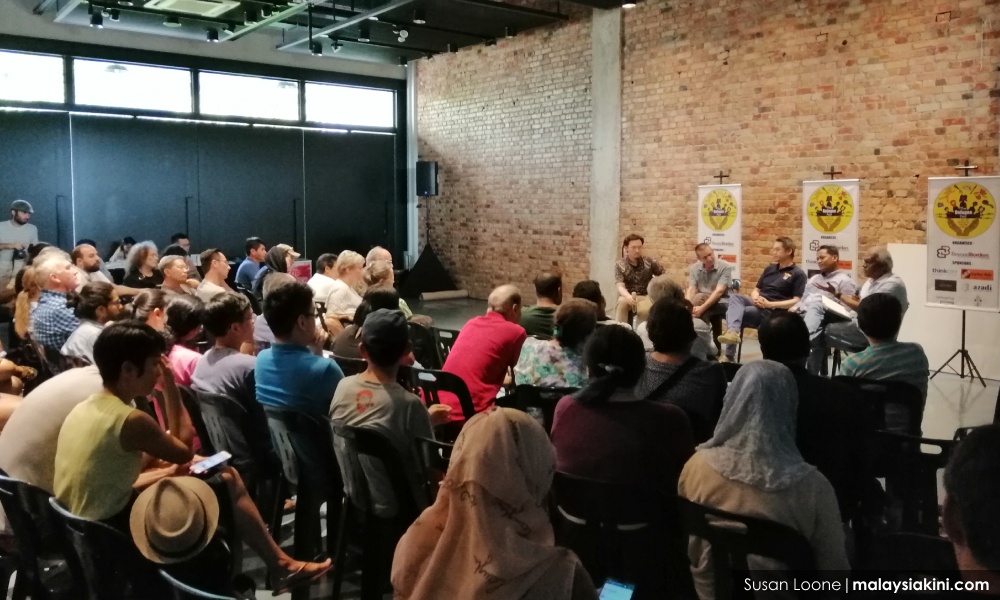
Rohingya refugee Zahid Alom questioned yesterday why Malaysian authorities have not been able to prosecute any of the culprits behind the human trafficking atrocities witnessed at Wang Kelian since the discovery of the mass graves in 2015.
Zahid – who arrived in the country in 2006, and who now volunteers with Penang Stop Human Trafficking (PHST) – pointed out that after the mass graves were discovered at the Perlis border, Thai authorities had charged some 60 suspects involved in the crime.
"But on the Malaysian side, only four people were charged, and they are mostly foreigners.
"The counterargument from the government is that we do not have evidence, how can we proceed to charge or persecute people?”
“There are many stakeholders who are trying to push the government to take action against the criminals, but those involved in the crimes tried their best to hide the evidence and did not leave any clues behind,” he told the crowd at the 2019 Refugee Festival in George Town.
As Zahid claimed, those responsible for the atrocities were aided by local villagers.

“Wang Kelian happened in the jungle, where over 100 people were massacred, but there were people in the kampung or town nearby who provided them food, medicines, and other assistance.
“If we want to bring those culprits to court and charge them, go to nearest village and talk to those who have knowledge in this incident.
"Perhaps then we will be able to find some clues about the culprits involved in this crime,” he stressed.
The Wang Kelian mass graves, which contained the bodies of at least 139 human trafficking victims, was first discovered by journalist S Arulldas and photographer Sayuti Zainuddin in May 2015.
In February, the Pakatan Harapan administration announced the formation of a royal commission of inquiry into the crimes, which drew worldwide condemnation.
The Sold Like a Fish report by the Human Rights Commission (Suhakam) and NGO Fortify Rights alleged that the police delayed exhuming bodies from the graves by up to four months after their discovery.
Besides Zahid, speakers at the panel included former Asean Intergovernmental Commission on Human Rights chairperson Edmund Bon, Asean Interparliamentary Committee on Human Rights chairperson and Klang MP Charles Santiago, PSHT coalition representative James Lochhead.
Roadmap on refugee needs
Bon (below) said that it is time for the refugee community to come up with a roadmap on what it wants from the international community, as they have been lamenting their plight for decades.

Despite some 70 civil society groups here committed to assisting refugees, he said, none had produced a roadmap on what refugees really want.
“We can invite new NGOs who are interested to help to at least prepare a policy document for education, healthcare and employment for refugees.
"Lawyers need to know what is really required. We need to have a very concrete document on this, and we do not have enough technical experts,” added the lawyer, who said he was willing to take up cases on a pro bono basis.
Bon reminded the audience that Harapan had made a "U-turn" on their election manifesto by withdrawing from the Rome Statute of the International Criminal Court, which could be used to penalise perpetrators of war crimes and genocide.

“We are also supposed to sign on to the United Nations International Convention on Refugees. However, even without this, there have been positive outcomes of our long engagement with the authorities.
“These positive changes include the commitment not to abuse asylum seekers, especially when they are documented.
"While they have no right to education, the government will not stop any community learning centres who educate their children.
"They have no right to employment in this country, but the refugees have been able to do informal work, and in terms of healthcare, they have been able to enjoy discounts,” he explained.
The 2019 Refugee Festival, which began on April 5, will conclude today with a workshop on the Theatre of the Oppressed by Parastoo Theater Team director Saleh Sepas, a panel discussion on mental health access for refugees in Malaysia, and a film screening of Bou, the award-winning documentary by investigative filmmaker Mahi Ramakrishnan.
On Friday, the audience at the festival were entertained with musical performances, poetry recitals and artworks by several refugees, including Ali Farran, Anwar Bahrami, Hassan Al-Akraa, Komeil Zarin, Esmail Ghaibi and Mwaffaq Al-Hajjar. - Mkini



No comments:
Post a Comment
Note: Only a member of this blog may post a comment.